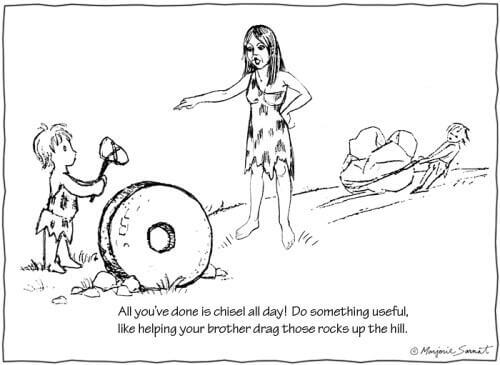A paradigm is a typical example or pattern of something; a model.
Before starting the post proper, recently I wrote the first “Movies with Meaning” post in which a quote from the movie “Lucy” was :
“The whole purpose of life has been to pass on what was learned. There is no higher purpose”
From this, today’s post and a number in the future will see me share “stories that make a point” that I have found valuable to share in the past in workshops and with groups and individuals.
So, for today, do you know what the word Paradigm means?
Yes? Ok, what does it mean?
In a workshop, this typically has everybody nod and murmur “yes” they know what it means, but when the follow-up question comes, the answer is far less confident. Normally silence or a hesitant and incomplete answer.
In order to get everyone on the same page as to the meaning of the word Paradigm, I tell this story, an urban legend that has developed from various social experiments.
It is a very cold morning at the zoo. We are at a large outdoor enclosure for monkeys, shaped like a birdcage with straight sides and a half circle roof all made of iron bars.
A social scientist has decided to conduct an experiment in behaviour, so the night before the monkeys did not receive any food so are very hungry this morning.
Four of the monkeys have been let out from their warm indoor enclosure into the cold and exposed outdoor enclosure. The monkeys are looking for food anywhere, when they see, in the centre of the enclosure, a ladder.
Hanging down from the top of the cage is a rope, and attach to the rope is a large bunch of ripe bananas that dangles temptingly just above the top of the ladder.
The monkeys look around at each other, then one of them makes for the ladder and starts to climb. As the monkey gets about halfway up, the scientist unleashes the full power of a fire hose and the force of the icy water slams the monkey off the ladder and against the wall of the enclosure, where the primate then sits, stunned and shocked.
The other monkeys observe this, but, as they are hungry, another one soon decides to try for the bananas.
Same again. Thud! Have you ever tried using a fire hose? The sheer pressure is immense. Now imagine this hitting you square in the chest, knocking you off a ladder and clear across the cage, where you then sit hurt and freezing cold!
Despite this now being predictable, each of the monkeys tries this for themselves, as hunger drives them beyond the fear of what they have seen and know will happen.
After the fourth monkey joins the others, wet, cold, in pain and clustered against the wall, the experiment proper begins.
The first monkey is removed and replaced with another monkey who is dry, warm and has not witnessed anything so far.
As that new monkey gets up to try to go up the ladder, all the other monkeys, knowing exactly what would happen, and with personal experience of what that feels like, hold the new monkey back, with gestures that seem to say “we don’t do that here”. The new entrant is confused but stays in place.
Soon after, the second old monkey is replaced with a second new one, and again the other three monkeys in the cage hold the new monkey back.
A little later, the third old monkey is replaced with a third new one, and again the same.
Finally, the last remaining cold, wet and in pain monkey is replaced with a new one, and again the three other monkeys stop the new one from climbing the ladder.
What is different this final time though?
THEY ALL KNOW THAT THEY DON’T CLIMB THE LADDER
… BUT NONE OF THEM KNOW WHY
In these “Unthinkable” times of rapid and radical change and disruption, the most dangerous words in business are :
“We’ve always done it this way”
Where, as a leader (or, in my case, often as a facilitator) you are seeking to take a group of people to stretch outside of their comfort zone to design/engage with a brave and transformative vision, it is absolutely necessary to shift paradigms.
My advice is to tell a story to begin to a) help the group understand what a paradigm is, and b) land for them that in many ways we all unconsciously hold beliefs that limit us from fresh thinking and new visions for ourselves and our businesses.
Once we are clear that we all have unconscious and limiting beliefs, we can look to invent the wheel :

